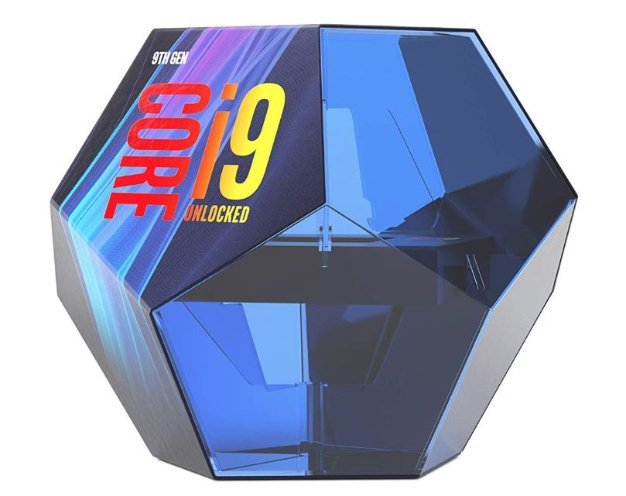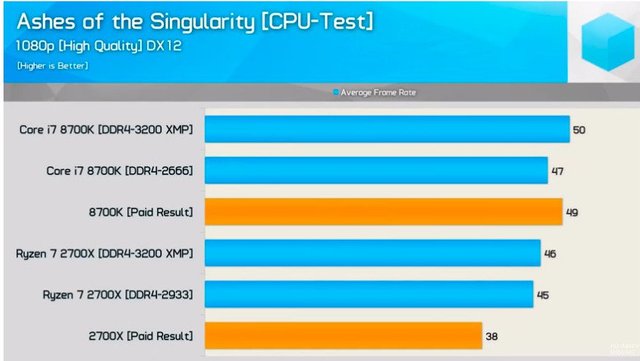Intel manipulates the benchmarks of the i9-9900K
Intel yesterday announced its ninth-generation Core processors, including the Core i9 9900K, with benchmarks included to show that they are superior to the AMD Ryzen 2000. Enthusiasts quickly pointed out that Intel numbers are erroneous and misleading, as they distort both test configurations and run the AMD processors with suboptimal configurations. Intel paid Principled Technologies, a third-party performance testing agency, to obtain performance data by comparing the Core i9-9900K with the Ryzen 7 2700X, instead of testing the two chips internally and publishing their test configuration data.

From the beginning, we see that Principled Technologies uses a sub-optimal memory configuration for the Ryzen 7 2700X, with the four memory slots occupied, and at stock speeds. Principled Technologies configured the memory clocks of the Ryzen configuration at 2933 MHz, allowing the motherboard BIOS to find extremely high memory times to stabilize the memory clock. In the case of the Core i9-9900K, the testers simply changed the XMP profile of the Corsair Vengeance RGB DDR4-3000 memory kit, which ended not only in higher clocks, but also in tighter latencies. This gives the Intel platform a significant performance advantage against AMD. Ryzen processors are more sensitive to memory than Intel, since DRAM clocks are synchronized with InfinityFabric, which determines the communication speed of the two internal components of the chip.

The next part of his disappointment was to test both configurations at 1080p in "Ashes of the Singularity" with medium settings, to obtain extremely suspicious performance data. When HardwareUnboxed used similar configurations to compare its Core i7-8700K with the Ryzen 7 2700X, the performance numbers obtained were very different, and do not bode well for the credibility of Core i9-9900K numbers. Without the unfair advantage of the i9-9900K, the Ryzen 7 2700X produces frame rates up to 18% higher than the Intel numbers suggest. The story is repeated with "Assassin's Creed Origins", where the numbers of Principled Technologies paint the Intel 8700K at 36% faster than the 2700X, while in reality it is 8% faster. In the case of the Core i9-9900K, the testers simply changed the XMP profile of the Corsair Vengeance RGB DDR4-3000 memory kit, which ended not only in higher clocks, but also in tighter latencies. This gives the Intel platform a significant performance advantage against AMD. Ryzen processors are more sensitive to memory than Intel, since DRAM clocks are synchronized with InfinityFabric, which determines the communication speed of the two internal components of the chip.